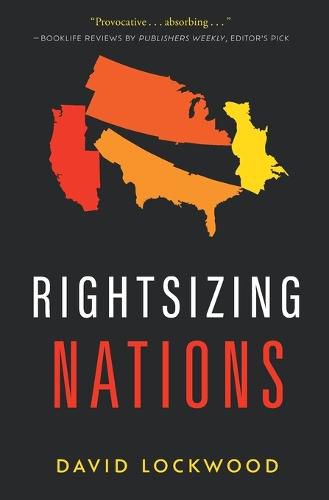Readings Newsletter
Become a Readings Member to make your shopping experience even easier.
Sign in or sign up for free!
You’re not far away from qualifying for FREE standard shipping within Australia
You’ve qualified for FREE standard shipping within Australia
The cart is loading…






This title is printed to order. This book may have been self-published. If so, we cannot guarantee the quality of the content. In the main most books will have gone through the editing process however some may not. We therefore suggest that you be aware of this before ordering this book. If in doubt check either the author or publisher’s details as we are unable to accept any returns unless they are faulty. Please contact us if you have any questions.
For nations, size matters.
The United States can afford aircraft carriers; Costa Rica cannot. The more populous a nation, the lower the cost per taxpayer of highways, schools, and public safety. The more domestic consumers, the larger the scale of markets unfettered by trade barriers. The larger a nation's economy, the greater the diversity of jobs available to workers.
But greater size comes at a cost: the more people, the more potential for conflict. This trade-off between the benefits of size and the potential for conflict often determines whether a nation succeeds-or fails.
Since WWII, most nations in which the advantages of size were outweighed by the disadvantages of internal strife have split apart. As a result, the number of nations in the world has exploded from 74 in 1945 to 196 in 2022. But some large countries today remain "too big."
Nations that fail to rightsize will suffer from increasing social turmoil and political violence in the years ahead. These countries risk civil war or the rise of authoritarian leaders from both the far-right and far-left who promise to bind a nation together by force.
Praise for Rightsizing Nations
"Provocative . . . and absorbing."
BookLife Reviews, Publishers Weekly
"Engaging and timely . . . "
-Foreword Clarion Reviews
"Well-written and intriguing . . . breaks down a complex analysis into accessible prose."
-Kirkus Reviews
"Fascinating and scary . . . "
-Readers' Favorite
$9.00 standard shipping within Australia
FREE standard shipping within Australia for orders over $100.00
Express & International shipping calculated at checkout
This title is printed to order. This book may have been self-published. If so, we cannot guarantee the quality of the content. In the main most books will have gone through the editing process however some may not. We therefore suggest that you be aware of this before ordering this book. If in doubt check either the author or publisher’s details as we are unable to accept any returns unless they are faulty. Please contact us if you have any questions.
For nations, size matters.
The United States can afford aircraft carriers; Costa Rica cannot. The more populous a nation, the lower the cost per taxpayer of highways, schools, and public safety. The more domestic consumers, the larger the scale of markets unfettered by trade barriers. The larger a nation's economy, the greater the diversity of jobs available to workers.
But greater size comes at a cost: the more people, the more potential for conflict. This trade-off between the benefits of size and the potential for conflict often determines whether a nation succeeds-or fails.
Since WWII, most nations in which the advantages of size were outweighed by the disadvantages of internal strife have split apart. As a result, the number of nations in the world has exploded from 74 in 1945 to 196 in 2022. But some large countries today remain "too big."
Nations that fail to rightsize will suffer from increasing social turmoil and political violence in the years ahead. These countries risk civil war or the rise of authoritarian leaders from both the far-right and far-left who promise to bind a nation together by force.
Praise for Rightsizing Nations
"Provocative . . . and absorbing."
BookLife Reviews, Publishers Weekly
"Engaging and timely . . . "
-Foreword Clarion Reviews
"Well-written and intriguing . . . breaks down a complex analysis into accessible prose."
-Kirkus Reviews
"Fascinating and scary . . . "
-Readers' Favorite